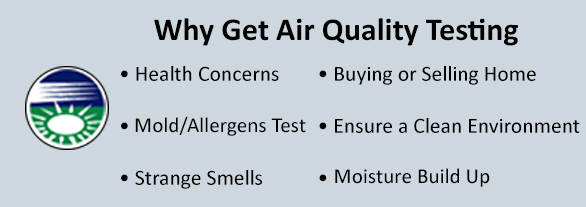
HH North Carolina
AIR TESTING AND CONSULTING
Serving North Carolina
What is Indoor Air Quality Testing
In the realm of Indoor Air Quality (IAQ), where the air we breathe directly impacts health and comfort, comprehensive testing becomes imperative. At HH North Carolina, we recognize the importance of ensuring that the air within and around buildings is not only clean but also safe. With the majority of people spending a significant portion of their time indoors, addressing indoor air pollution is vital.
Indoor air pollution stems from various sources, encompassing mold, allergens, dust, and more. To gain insights into the quality of indoor air, it is essential to conduct Indoor Air Quality Testing. This process helps identify potential issues, empowering building owners and occupants to take proactive measures to enhance air quality.
To assess the quality of indoor air, it’s necessary to conduct indoor air quality testing, which can help identify any potential problems and allow building owners and occupants to take steps to improve air quality.
Fill Out the Form Below
Get A Free Consultation!
Indoor air quality testing is an important aspect of ensuring the health and comfort of building occupants. By identifying sources of indoor air pollution and evaluating the effectiveness of air filtration and ventilation systems, indoor air quality testing can help improve the air quality within a building and protect against potential health problems. Building owners and managers should consider conducting indoor air quality tests on a regular basis to ensure that their buildings are providing a safe and healthy environment for occupants.



HH North Carolina
AIR TESTING AND CONSULTING
Serving North Carolina
*DISCLAIMER: Although many individuals experience symptomatic relief from reductions of airborne microbial contamination, indoor air environmental quality is highly complex and effected by many factors. Each individual has different sensitivities to pollutants, pollutant levels or environmental conditions. Individuals with pre-existing allergic conditions, respiratory problems or other symptoms should always consult a competent physician. H&H Environmental North Carolina cannot and does not express any opinion on individual health problems or their elevation from reduction of microbial contamination. Accordingly, Atwood Environmental specifically disclaims any health or individual or collective symptomatic relief.